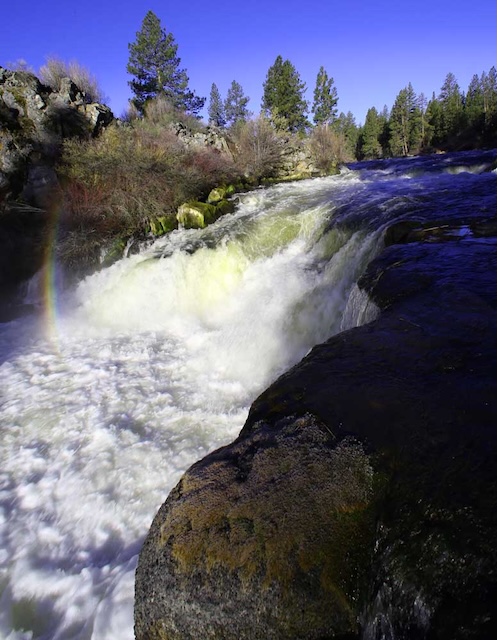Guest column: Land-sale silver bullets won’t tame the West’s wicked twins
Published 4:20 pm Wednesday, June 11, 2025

- Jamie Collins
There is a common, shrug-of-the-shoulders saying in the Intermountain West: If members of Congress were forced to spend their summer recess in a place like Spokane, Boise or right here in Bend — enduring weeks of brutal, asthma-inducing, quarter-mile-visibility wildfire smoke punctuated by the occasional evacuation order — we’d have made more progress on the devastating wildfires that continue to wreak havoc on our homes, health, our climate and the economy.
By this argument, a summer or early fall spent here in Deschutes County could net us a two-fer — solutions not just to our fire problem, but to the homelessness crisis that earned the County unflattering national attention this spring when the Forest Service cleared hundreds of people living in camps to make way for long-planned wildfire mitigation project. A few weeks spent in the woods among our hundreds of unhoused fellow residents — including families, children, and veterans like me, some coping with PTSD or disabilities — might spark creative thinking about the long-term strategies urgently needed to address both crises.
One thing that won’t solve either problem: quick sales of Federal forests and rangeland without environmental review, which could begin this fall thanks to language in President Trump’s “big, beautiful bill.” Utah Sen. Mike Lee has vowed to revive the provision in the Senate after it was rejected in the House, where it was originally championed by our own Rep. Cliff Bentz and others.
Trending
Although the initial proposal targets Nevada and Utah, central Oregon lands are in the crosshairs. The American Enterprise Institute has identified a 7,400-acre Bureau of Land Management tract outside Bend as the most developable parcel of federally-owned land in the U.S.
In Bend, homelessness has become inextricably tied to how we use and manage increasingly fire-prone public lands. The average Deschutes County voter lives just 2.2 miles from national forest or BLM land; the furthest anyone in Bend lives from a major federal tract is 3.9 miles.
This proximity is one of the reasons I stayed in Bend to build a life with my family after moving here for a job as Oregon’s regional emergency oil spill and hazardous materials response officer. But these same lands have also become ground zero for our County’s twin crises: housing and wildfire.
Quick, no-review land sales would promote market-rate housing deep within the fire-prone wildland-urban interface, doing little for the nurses, farm workers, teachers, and firefighters who keep our communities running — and even less for our unhoused neighbors. Over the past 20 years — as a 22-year veteran of the military and state official — I’ve led emergency response operations to hundreds of disasters across the U.S. and here in central Oregon, including wildfires, oil spills, and hurricanes. I’ve seen firsthand the dangerous burden we place on first responders when we encourage more settlement in vulnerable areas.
And in Bend, where the median home price reached $832,000 in April, more luxury or market-rate homes — without significant construction in the below-market segment — won’t help prospective renters or homeowners earning at or below the area’s median household income of $104,700 a year.
Oregon already has a system — our urban growth boundary law — that allows for planned, thoughtful annexation of land to support growth. The state has already used provisions under the law to fast-track development where needed, while maintaining the critical environmental reviews that the Federal proposal would eliminate.
Trending
There’s also little evidence that land supply is the main barrier to affordable housing. As journalist Jonathan Bach recently noted in his new book about our housing crisis, building market-rate homes alone won’t solve the problem. We need deliberate strategies that bring together major developers and community organizations like Rooted Homes and Mountain View Community Development: subsidies, set-asides, and policies to ensure working people and low-income families aren’t left out of the housing market altogether.
Our housing and wildfire crises are deeply linked. They are structural, cross-jurisdictional problems that defy easy solutions — and both converge on our public lands. Those lands must be managed with care, foresight, and collaboration across all levels of government.
Selling them off without review might seem like a quick fix from far away. But here in Deschutes County — and in communities like it across the West — silver-bullet land sales are no match for challenges this complex.
Jamie Collins is a climate scientist and lives in Bend.







